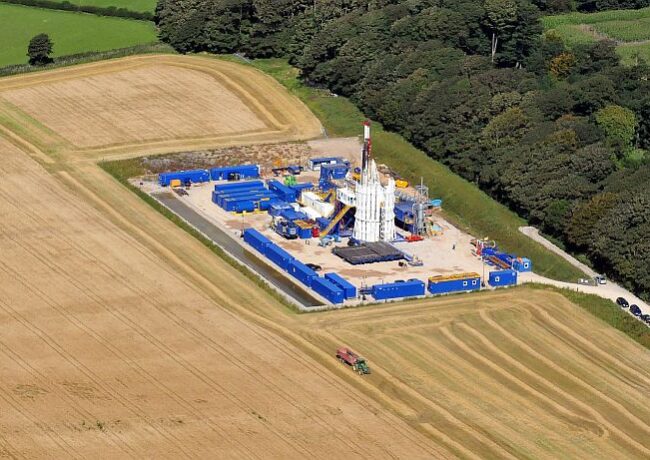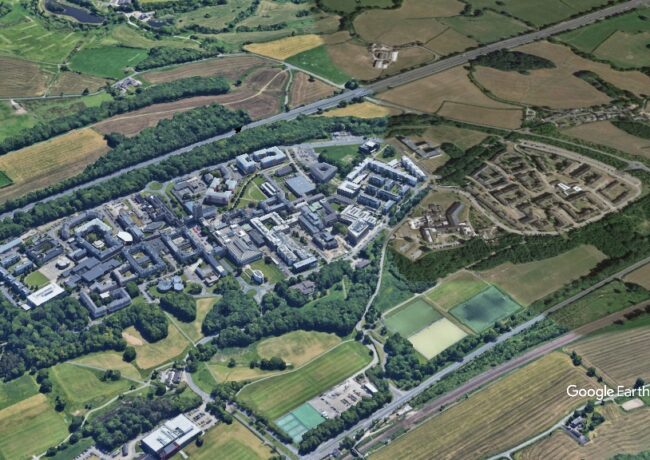Fracking approved despite causing tremors
US energy company Cuadrilla Resources has welcomed the findings of the government's review on seismic events relating to fracking in Lancashire.
The Department of Energy & Climate Change published on Tuesday a review of tremors which occurred in April and May 2011 in the Bowland Basin, Lancashire. The review team included experts from Keele University and the British Geological Survey and was charged with reviewing a series of expert reports submitted to DECC late last year by Cuadrilla Resources.
Cuadrilla suspended hydraulic fracturing following the minor tremors and commissioned its own set of expert studies and combined final report, published in full on its website in November 2011.
The original scientific study by Cuadrilla Resources took six months to complete and was carried out by an independent European team of eminent scientists, geologists and seismologists under the direction of Dr Hans de Pater. This study concluded that the two seismic events on April 1 and May 27 last year were probably linked to the company's hydraulic fracturing activities at the Preese Hall well site near Blackpool.
DECC today recommended measures to mitigate the risks of seismic tremors from hydraulic fracturing and invited public comment on its recommendations.
The DECC expert review concludes that it is safe to resume hydraulic fracturing provided the recommended operating procedures as outlined in their report are followed.
Mark Miller, chief executive of Cuadrilla, said: "We are pleased that the experts have come to a clear conclusion that it is safe to allow us to resume hydraulic fracturing, following the procedures outlined in the review. Many of today's recommendations were contained in the original expert studies we published in November last year, and our supplementary information sent to DECC in January.
"We have already started to implement a number of the experts' recommendations in the pursuit of best practice and look forward to the final decision by DECC ministers concerning the resumption of hydraulic fracturing following the six week period for public comment commencing on 17 April."
An effective monitoring system and a traffic light control regime are among measures recommended by the report, which has reviewed a series of studies commissioned by Cuadrilla, and confirmed that minor earthquakes detected in the area of the company's Preese Hall operations near Blackpool in April and May last year were caused by fracking.
DECC's chief scientific advisor, David MacKay, said: "If shale gas is to be part of the UK's energy mix we need to have a good understanding of its potential environmental impacts and what can be done to mitigate those impacts.
"This comprehensive independent expert review of Cuadrilla's evidence suggests a set of robust measures to make sure future seismic risks are minimised – not just at this location but at any other potential sites across the UK."
The invitation for comment runs for six weeks from today. All comments received will be considered and taken into account before any decision is taken on further fracking for shale gas.
The report recommends the following measures to mitigate the risk of any damaging seismic activity from future shale gas operations in the Bowland Basin:
- That the hydraulic fracturing procedure should include a smaller pre-injection and monitoring stage
- That an effective monitoring system to provide near real-time locations and magnitudes of any seismic events should be part of any future hydraulic fracturing operations
- That future fracking operations for shale gas should be subject to a "traffic light" control regime, similar to that recommended by Cuadrilla's consultants. A red light at activity levels of magnitude of 0.5 or above means fracking should be stopped and remedial action taken (this is lower than the magnitude 1.7 proposed by Cuadrilla's report).
- Unusual seismic activity, even at lower levels, should be carefully assessed before operations proceed
- For any future operations elsewhere in the UK the review recommends suitable actions to assess the seismic risk before any operations take place





– and a good minimum level of public liability insurance for those carrying out the operations?
By Nick
I have a strong interest in the development of Shale Gas Fracking particularly with Ireland’s potential resources of the material. Through my website http://www.ebizireland.com I have commenced debate in Ireland on the subject and look forward to UK developments in the sector. The key elements of concern have to be , potential pollution, seismic disturbance and financial benefits flowing to the state with all three getting equal consideration.
By Tom Doyle
These companies should also look into alternatives like terra slicing for oil and gas extraction which is ecologically safe and environmentally friendly, the alternative to explosive hydraulic fracturing.
By Mark Novak